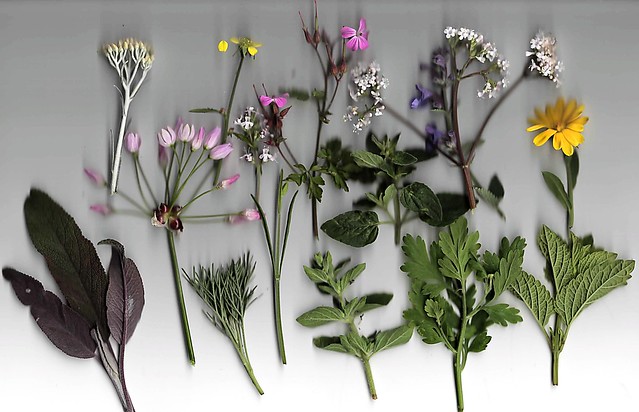Podcast: Play in new window | Download
In this Adventure we’re digging up the origins of the word herb.
A herb [hɜːb/(h)ɝb] is:
- Any green, leafy plant, or parts thereof, used to flavour or season food.
- A plant whose roots, leaves or seeds, etc. are used in medicine.
It comes from Middle English herbe [ˈhɛ(ː)rb(ə)] (a herbaceous plant, herbage, woody plant, tree), from Old French erbe [ˈɛr.bə] (grass, herb), from Latin herba [ˈher.ba] (grass, herbage, herb, weeds, plant), from Proto-Indo-European *gʰreh₁- (to grow, become green) [source].
The initial h sound in herb disappeared at some point, and was restored during the 15th century based on the Latin spelling. However, it wasn’t pronounced by many people until the 19th century, and still isn’t by many speakers, especially in North America.
Words from the same roots include grow, green, graze, gray/grey in English, herbe (grass) in French, erba (grass, herb) in Italian, and hierba (herb, grass) in Spanish [source].
Incidentally, this is the 100th episode of this series, which started in March 2021. You can find a list of all the words covered on Radio Omniglot. If you would like me to look into any words that I haven’t already covered, in English or other languages, you can leave your suggestions there as well.
Here’s a video I made of this information:
Video made with Doodly [afflilate link].
I also write about words, etymology and other language-related topics on the Omniglot Blog, and I explore etymological connections between Celtic languages on the Celtiadur.
You can also listen to this podcast on: Apple Podcasts, Amazon Music, Stitcher, TuneIn, Podchaser, PlayerFM or podtail.
If you would like to support this podcast, you can make a donation via PayPal or Patreon, or contribute to Omniglot in other ways.

